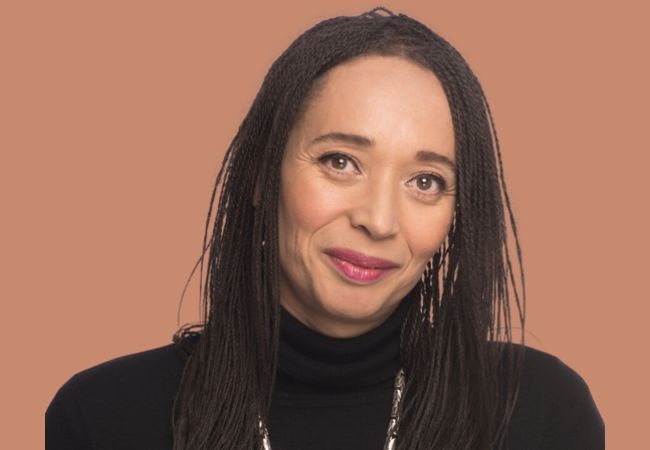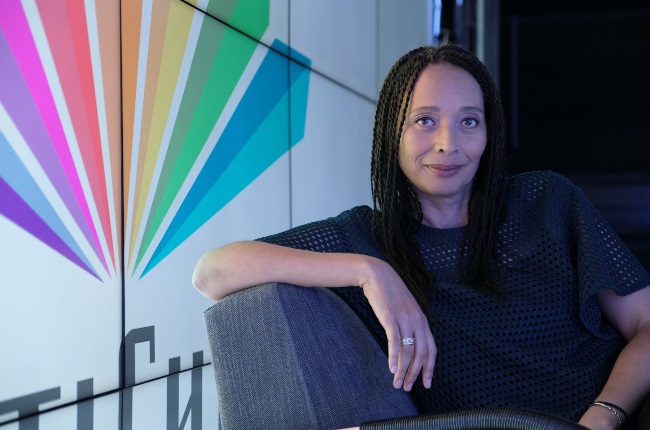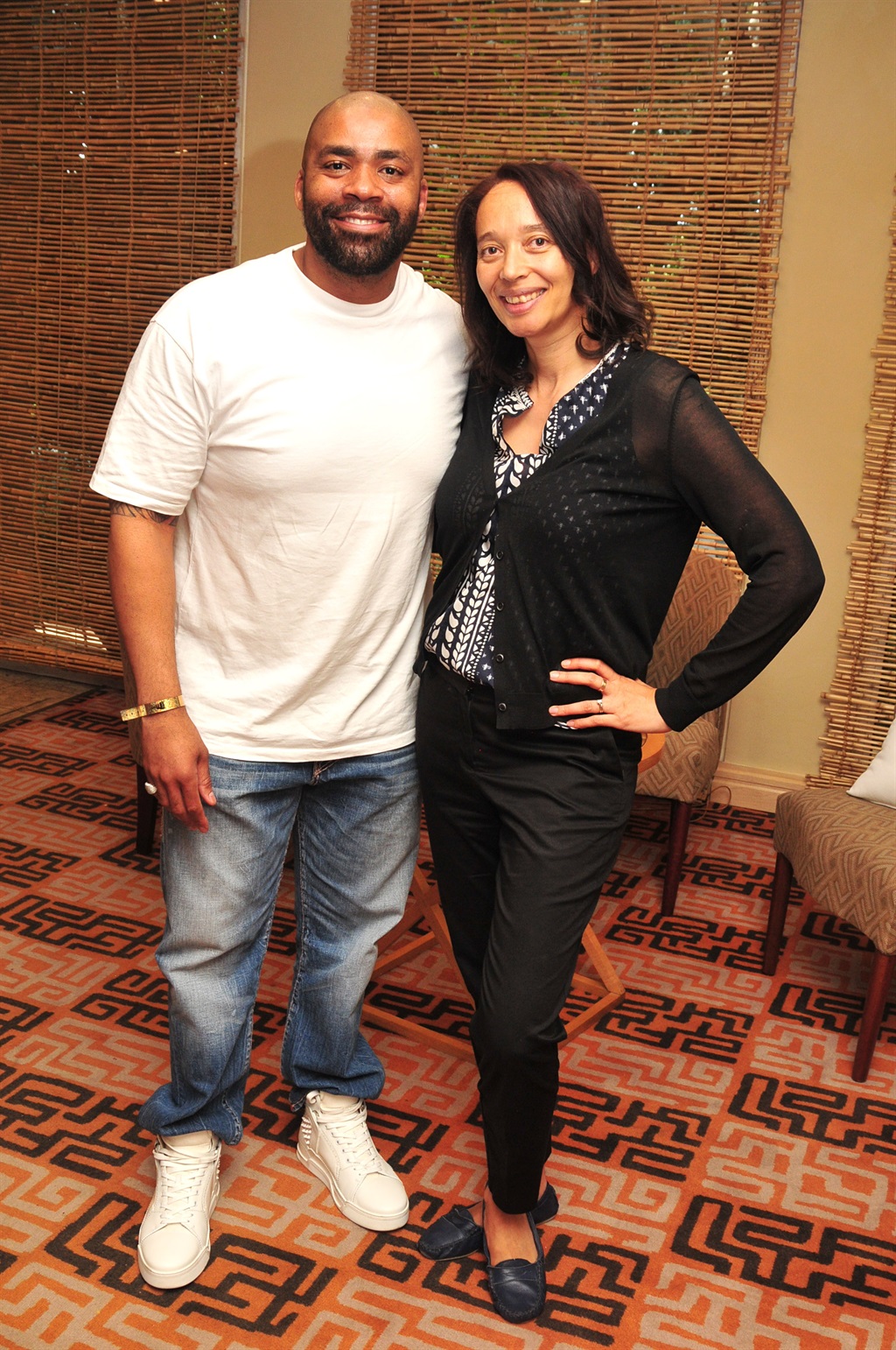
In Africa, we watch on average of twice as much video entertainment a day than people do in the rest of the world.
This is a statistic Yolisa Phahle, CEO of General Entertainment and Connected Video at MultiChoice, shares to make a point that there is a huge appetite for well-produced local stories that reflect our realities as they entertain and educate.
As she sits down to talk about her career journey with Drum, MultiChoice's recently released financial results show Showmax grew 68% year on year.
It’s an astounding achievement that Yolisa attributes to a great local content strategy, with beautifully produced shows such as The Wife growing subscriptions to the streaming service; team work and a fantastic digital and social media strategy that keeps fans fixated on Showmax shows, their plots and characters.
Indeed, in the past year, the cast of the shows the Subscription Video on Demand (SVOD) service has on its platform have often topped trends for their on-screen and off-screen storylines.
Even so, as entertaining as the content may be, behind the decision to produce it; behind the teamwork and social media strategy was a chief executive who had to foster an environment for these elements to work together to result in a tour de force performance of 68% YoY growth.
That chief executive is Yolisa Phahle, who stepped into the role of CEO of General Entertainment and Connected Video at MultiChoice in the first year of our Covid-19 lockdown.
“It was a mixture of exciting but also really scary,” says the former M-Net CEO when she reflects on that period in September 2020 when she was promoted from CEO General Entertainment MultiChoice Group to CEO General Entertainment and Connected Video MultiChoice Group.
“Exciting because I think anybody in the entertainment business knows that digital products, SVOD and online entertainment is the future. And I think obviously we know that in our market pay TV still has a very long runway, but ultimately we’ll catch up with the rest of the world.
“So that was very exciting – to learn something new. I mean, I spent a long time working in pay TV and Showmax is a completely different animal. For me it was wonderful to be chosen to learn something new in such an important part of our business. But the scary thing is that it was all new to me.
“I hadn’t worked in a digital business of this nature before. And then the really scary thing was that everybody was on lockdown and we couldn’t actually meet each other in person," she says.
“I guess as the leader of the business, your job is to lead with impact. That means sometimes you’ve got to make big decisions which are different to the way in which the business was being led in the past. You’ve got to do that and at the same time you’ve got to keep really valuable staff and great skills in place.
“Managing that dynamic was key. When I came in, we’d decided as a business that our biggest chance of success and our biggest opportunity was to do something different to our global streaming industry fellows.
“So when they put together their strategy, they think Africa is a part of it but not the whole part. But for us Africa is the beginning, the middle and the end. And that meant, actually, that we ultimately would change our content strategy and roadmap because African people are like people anywhere else in the world – we want to watch ourselves, we want to hear our languages, we want to see our past, our present and our future represented when we sit down to be informed or entertained."
She says Showmax, which recently celebrated its seventh birthday, was ahead of the game because it was the first streaming service launched in Africa back in 2015.
“Nobody was in our market at that time. The understanding was that data was expensive and probably the initial subscribers would be people who were in the same premium bracket as DStv, and that those people – whilst they love local content – had been more exposed to international content.
“So there was a big focus on international content at the beginning and a small focus on local content. With my arrival, what I wanted to bring to the party is that the world has changed since Showmax launched and we have to do something different and we have to play to our strengths.
Read more | 30 Inspiring Drum Women | How we convinced Disney there is a demand for African sci-fi – Tendayi Nyeke
“I think what we’ve done very well as DSTv is play to our local storytelling strengths and that was really a philosophy that we wanted to apply at Showmax. But it was challenging because you’re trying to build a new vision for the business but you can’t meet people face-to-face.
“And you have to have difficult conversations on Teams without actually ever having had the opportunity to meet people face-to-face and build relationships with them. So, yes, it was exciting, but it was scary and it was hard.”
As she speaks, you can hear in Yolisa’s accent that she grew up in the UK. Her parents moved there during apartheid and she and her sister were raised in a diverse, dynamic community that included the likes of South African writer, poet and actor John Matshikiza of There’s a Zulu on My Stoep fame; great trumpeter Hugh Masekela; and Sixties DRUM journalist and novelist Arthur John Maimane.
“My dad grew up in Alexandra township and my mom grew up between KwaZulu-Natal and Noordgesig in Johannesburg. But I grew up, and I was born, in England. And there were many benefits because my contemporaries didn’t have access to great education or schools in South Africa at the time.
“But then the other thing is we were a minority in a foreign country. My parents, luckily for me, were educationalists. My father is a mathematician and statistician, my mother was a head teacher in a school.
“They basically said to me, ‘We are a minority, we are immigrants, so you’ve got to basically just work very hard. No one is going to take any notice of you if you aren’t at least as good as the best in the class because there are always pre-conception about us, about black people, about Africa.
“‘You’re going to work really hard to prove to everybody that those are just misconceptions and what they think about us or about black people is just not right.’
“So I think for me I always knew that I had to try really, really hard and I was a minority. I remember going to Wales and me and my sister had Afros, and I remember the kids going, ‘Well, when are they going to take their hats off?’” Yolisa bursts out laughing at the memory.
But she admits those incidents cut deep when she was a kid from an African family exiled in the UK.
“We were crying, hee, hoooh, saying ‘These aren’t hats, it’s our hair,” she chuckles.
“And another time – it was really funny – I was at PE at school and I had to take my T-shirt off to get changed,” Yolisa remembers.
“And this other little girl was, like, ‘Look! Her tummy is brown as well! It’s not just her face!’ And they all started laughing at me.”
She’s chortling and convulsed with laughter as she tells Drum these anecdotes about growing up in exile, but she soon gets serious when she talks about the impact of being othered.
“It was hard. But, luckily, my parents prepared me for that and supported me, so it just made me more determined. And I knew that a lot of those comments came from a place of not knowing and not understanding – so I think that in a way did give me an advantage.”
Her father had moved to the UK in 1965 without a passport after being forced into exile in Bechuanaland (now Botswana).
But his maths degree would enable him to stay on and build a new life with his family in England as he’d left his home country on an exit permit. Yolisa and her sister grew up being exposed to ideas about liberation, decolonisation, equality and black consciousness.
“I grew up at the feet of these icons who used the media to tell South African stories to the world. They inspired me to play a part in the advancement of the arts in South Africa,” Yolisa said in a previous interview.
“When I grew up, one of the things that my dad always told me about was Drum magazine and all the amazing photographers and people who work so hard to build that brand that today is still so important to us in South Africa,” Yolisa shares.
Her part in advancing the arts was becoming an accomplished violin player after enrolling at the Guildhall School of Music and Drama.
Her music career was going so well, the CEO recalls deciding not to complete her studies, something which bothered her father greatly.
But not earning a degree for what she was already doing, to great success too, didn’t trouble the young Yolisa much as the musician went on to share stages with Red Hot Chilli Peppers, Seal and Prince.
“When I went to music college, I did fail my final practical music exam and that was a massive blow. I even retook it a year later and failed again, and my dad just could not believe it. He said, ‘That means you’re not going to get your music degree.’
“And I said, ‘Yeah, I’m not.’
“And he said, ‘You’ve got to go back and retake the exam.’
“And I said, ‘I’ve taken it twice, Dad. It’s not going to make any difference. I’m moving on now.’
“By then I was playing and had a place in a great band called the Reggae Philharmonic Orchestra that was signed to Island Records and we were doing sessions for Soul II Soul.
“I just told my dad, ‘I’m not going back there. I’m moving on with my career,’ and he was understandably quite worried because he wanted me to have a degree – and I really wanted one but I just couldn’t get it.
So move on, she did, performing with the likes of Duran Duran and Jamiroquai – and honing a skill and talent that gives her an edge as a business leader today.
“As a musician, playing in an orchestra or playing in a band, it really is a team effort. And, yeah, in an orchestra you have a conductor just as in a business you might have a CEO.
“But you can’t do anything on your own. You could be – and, I mean, I am not – the smartest tool in the box, which I certainly am not. But it doesn’t matter because our business – and most businesses – are so complicated that if you don’t have a team of people that buy into that vision, contribute to that vision and deliver, you’re not going to get anywhere.
“So I guess one of the things I’d like to be remembered for is that I do like working with people and I do like building teams.”
Being offered an opportunity at the BBC World Service to be trained as a studio manager is the turning point that led her down the path of a new career in media.
She climbed up the ladder in the broadcasting service until she earned the title of BBC Senior Producer in 1996. In this role, she did programme production, presenter management and recruitment, playlists, digital media, performance management and live events for eight years.
Yolisa moved to SA in 2004 and made her dad extremely proud when she obtained her MBA at the University of Pretoria-affiliated GIBS (Gordon Institute of Business Science) business school in 2015.
“That was so nice, it was so nice! It was one of my proudest moments, really. But more because my dad was so happy. And he’s been such a good dad, I wanted him to be proud. But also for myself, to actually know that I can go in there and do the studying, meet new people and learn new things.
“The big thing about the MBA is that it’s just so much work, that it just teaches you to prioritise. You have to get things done, and you have to make decisions and you have to make sure that, if you’ve made the wrong decision, you realise quickly and you change it.
“My dad was one of the few people from Alexandra township who got to go to Wits in the ’50s and he’s always believed in learning. So I was just proud to finally get a degree even if it was when I was in my 40s.”
Being an impactful leader who inspires great teamwork, she says, “is about working together, it is about playing to the individual strengths of the collective and it about being there for other people because we’re all human and we can’t always go full tilt 24/7, 365 days of a year”.
“We do all know that while work is hugely important and hugely rewarding, that on our deathbeds we’re never going to say we wish we spent more time at work.
“You have to allow people the time to have other interests because it’s unhealthy as well if people can never switch off, so it’s all of those things, really, that matter.
“And I think the other thing with music is the fact that you’re only as good as your last show, aren’t you?”
If the 2021 financial results for the year ended 31 March 2022 are anything to go by, her last show deserves a big round of applause.





















